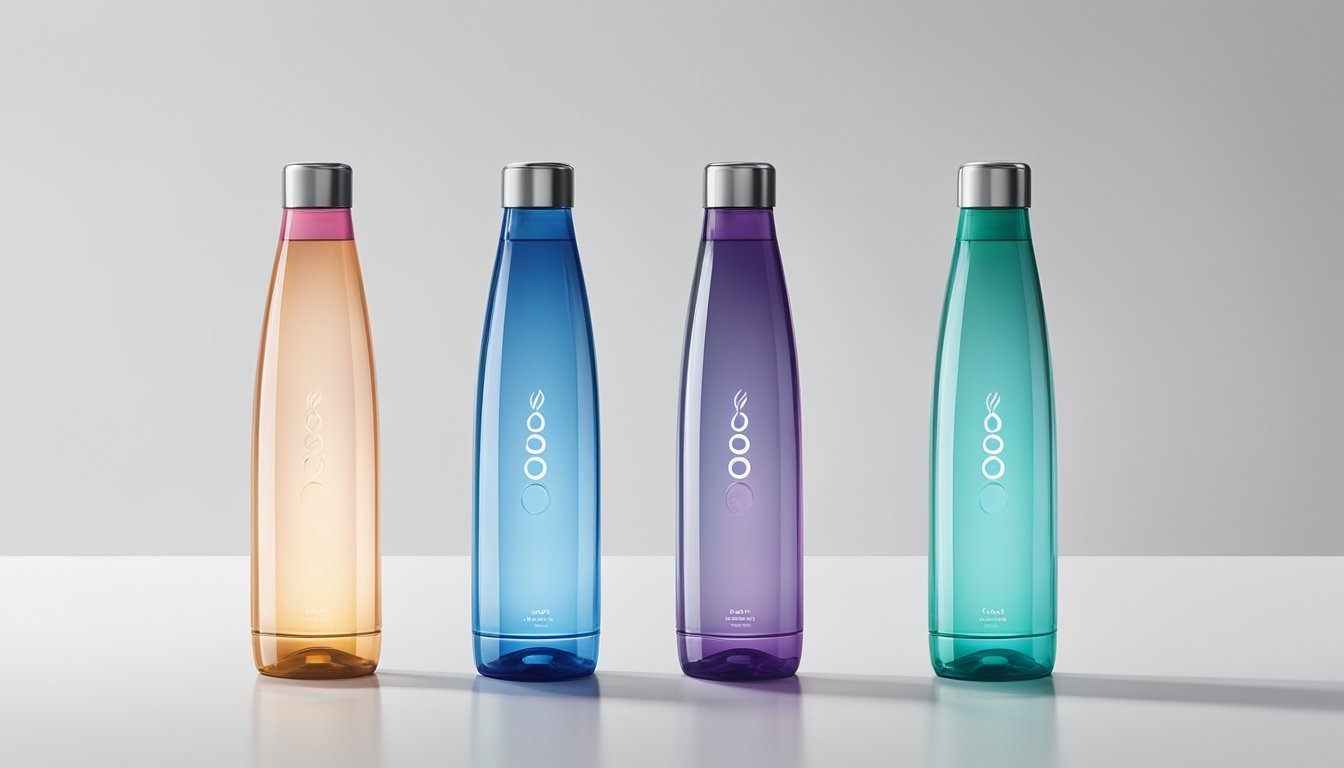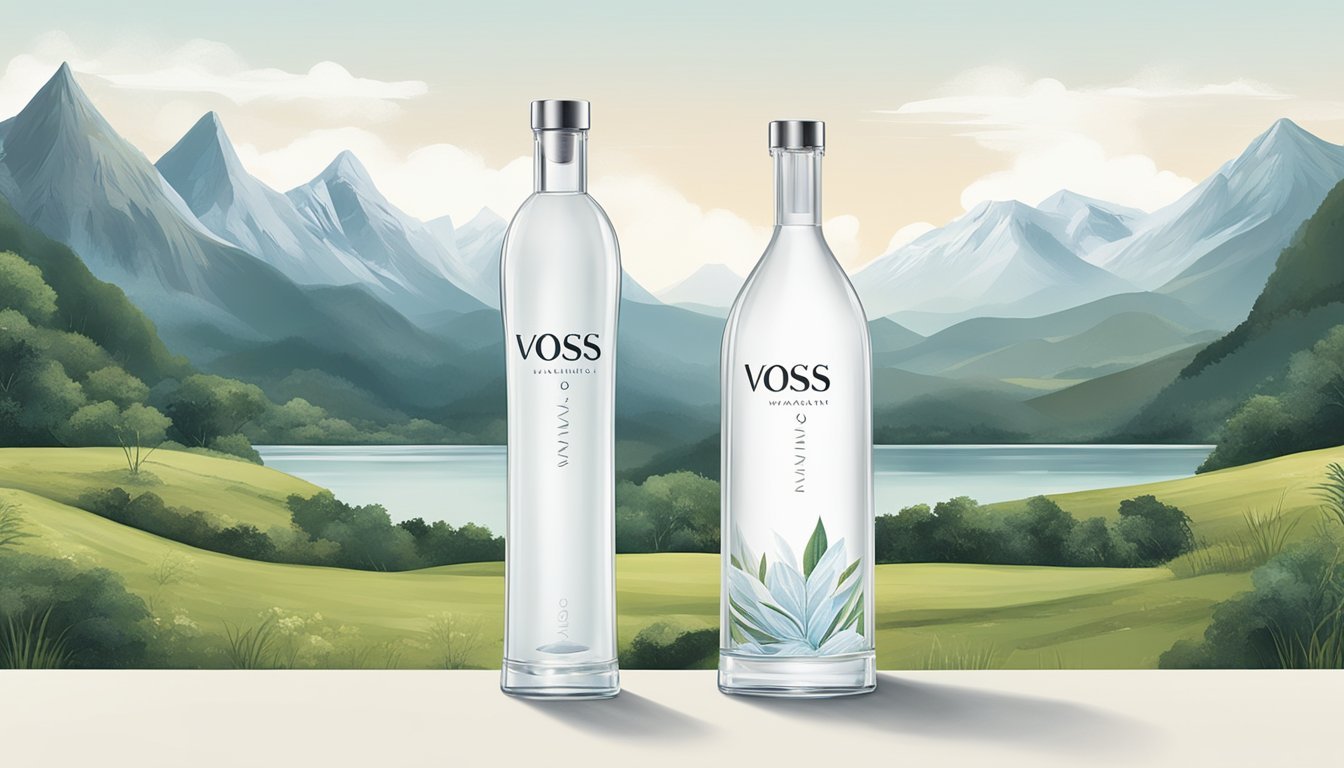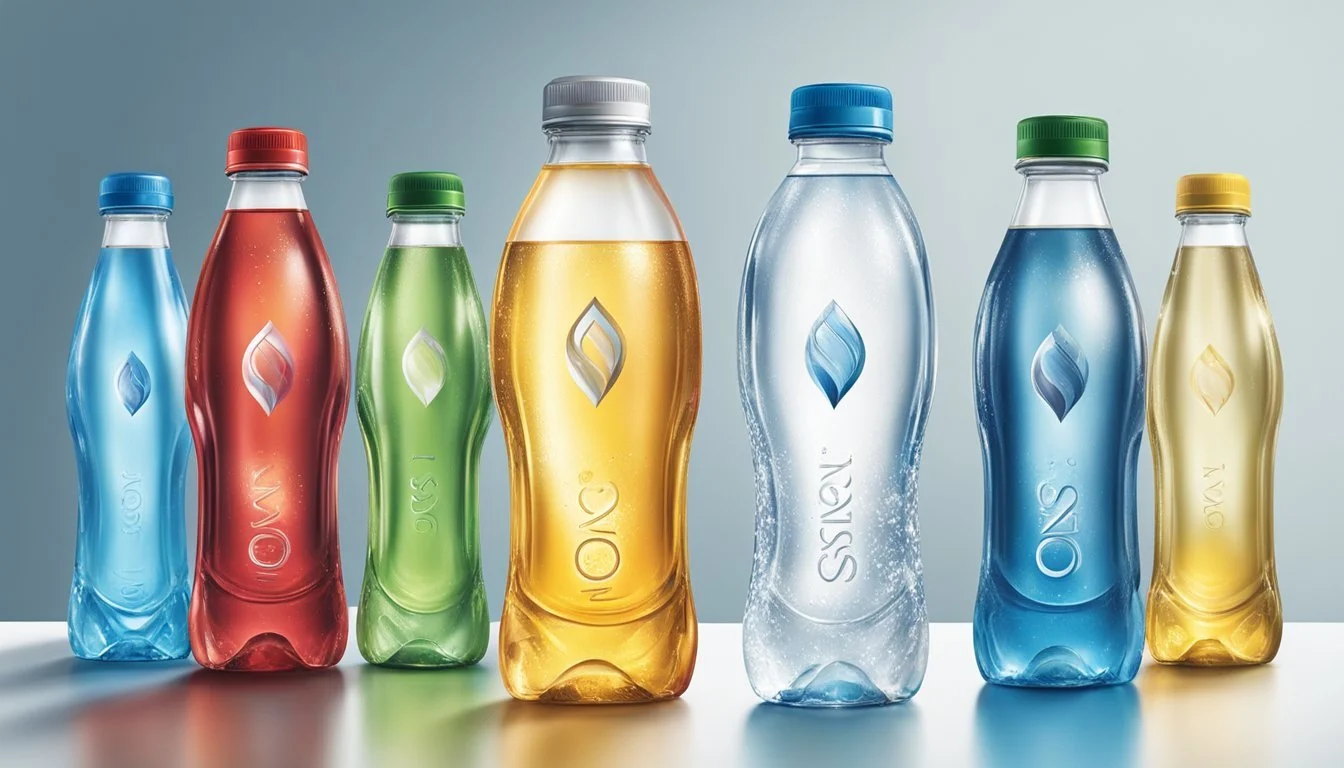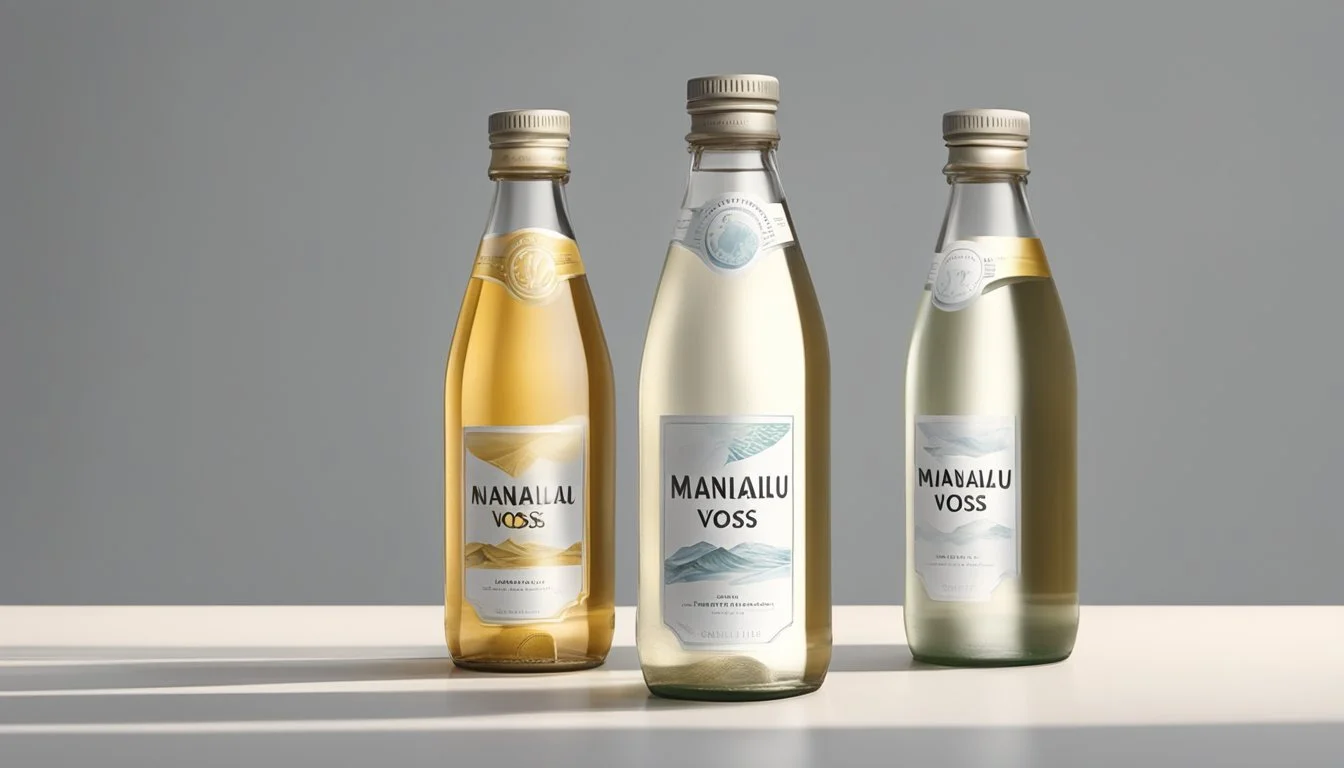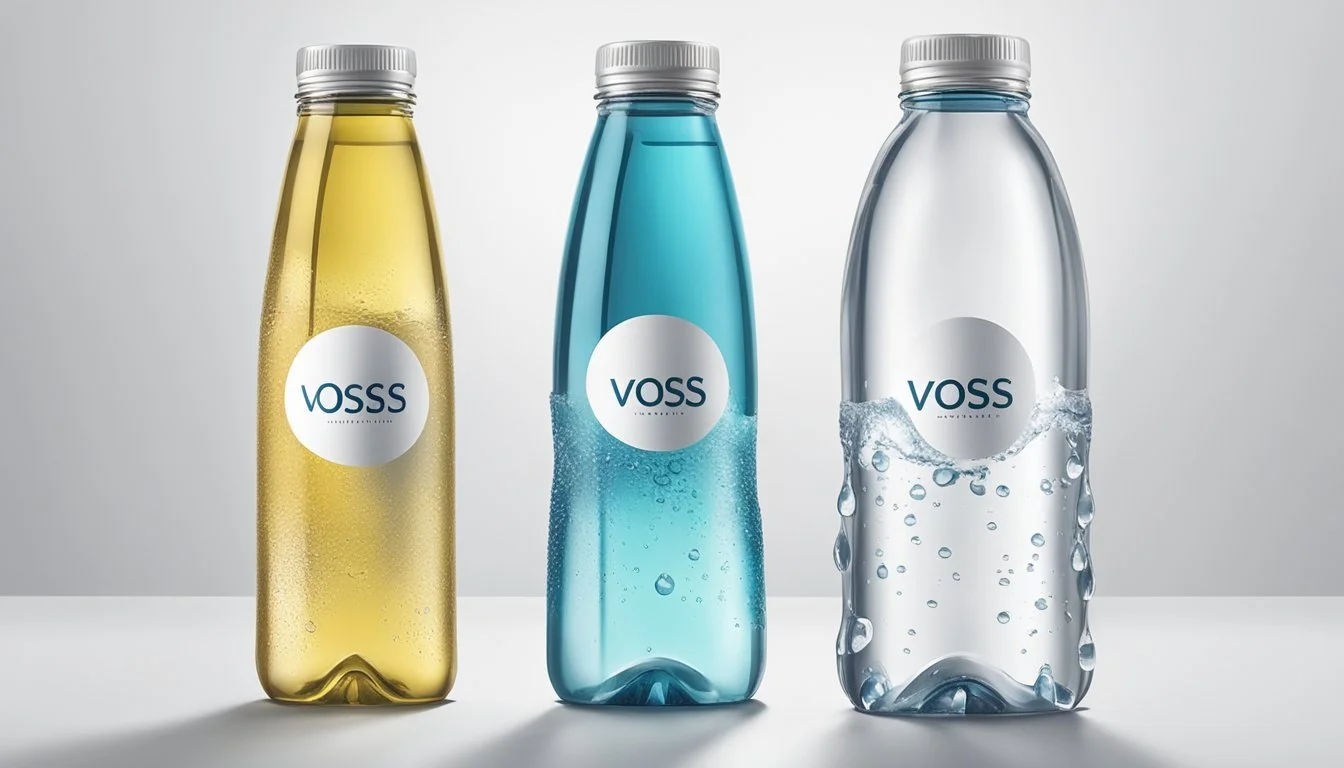Voss vs. Mananalu
Comparing Premium Bottled Water Brands
Bottled water is a convenient solution for staying hydrated on the go, but with so many brands available, choosing the right one can be challenging. Voss and Mananalu are two brands that have garnered attention for their unique offerings. Voss, sourced from Norway, boasts an upscale image with its iconic cylindrical glass bottle and is known for its clean, refreshing taste.
Mananalu, founded by actor Jason Momoa, emphasizes sustainability with its aluminum packaging and commitment to reducing plastic waste. This brand aims to provide not only hydration but also an eco-friendly alternative without compromising on quality. Between the two, Mananalu offers a more sustainable choice, while Voss delivers a premium experience.
Ultimately, the better choice depends on your priorities. If you seek luxury and a crisp flavor, Voss stands out. On the other hand, if environmental impact is a significant factor, Mananalu's approach to sustainability makes it a compelling option. Readers should weigh taste preferences, packaging, and environmental concerns when deciding which bottled water to choose.
The Rise of Bottled Water
Bottled water has experienced significant growth, evolving from a niche product into a major industry driven by health, convenience, and marketing strategies. This rise can be traced back through historical developments and current trends that shape consumer choices.
Historical Context
Bottled water's roots can be traced back to the mineral water spas of Europe in the 16th century. These early waters were touted for their health benefits and sold in glass bottles. By the 19th century, brands like Evian began to commercialize their product, capitalizing on the perceived purity and health advantages of natural spring water.
In the United States, bottled water gained popularity in the mid-20th century with brands like Poland Spring. Increased health consciousness and distrust in municipal water supplies further drove demand. Companies such as Nestlé and Coca-Cola entered the market with brands like Nestle Pure Life and Dasani.
Modern Popularity and Choices
Bottled water's surge in popularity today is underpinned by convenience, health awareness, and innovative packaging. The market offers a diverse array of choices, from Aquafina's Hydro-7 purification process to the eco-friendly appeal of Jason Momoa's Mananalu.
Brands like Fiji and Essentia emphasize electrolyte content and artesian sources. Smartwater and Core focus on advanced filtration techniques, appealing to health-conscious consumers. Environmental concerns have spurred companies to adopt sustainable practices, such as the recyclable packaging used by Mananalu.
Consumers now have access to varying types of water, from purified to spring, each promising distinct benefits. This variety, combined with effective marketing, continues to drive the bottled water industry's growth.
Environmental Impact and Sustainability
Voss and Mananalu both emphasize reducing environmental harm, but they adopt different strategies. A closer look at their approaches reveals the effectiveness and potential of each brand's commitment to sustainability.
Plastic Waste and Alternatives
Voss primarily offers its water in glass bottles, which are recyclable and have a lower environmental impact compared to plastic.
Mananalu, founded by actor Jason Momoa, packages its water in 100% recyclable aluminum cans. This eliminates the production of plastic waste, aligning with the brand's mission to eliminate single-use plastics.
Aluminum is also more frequently recycled than plastic, which further reduces environmental waste and promotes a circular economy.
Carbon Footprint of Water Brands
The production and transportation of bottled water contribute significantly to each brand's carbon footprint.
Voss sources its water from artesian wells in Norway, which can increase transportation emissions when shipping internationally.
In contrast, Mananalu aims to minimize its carbon footprint by leveraging a network of local suppliers and distributors.
Both brands use energy-efficient production processes, but localized operations give Mananalu a potential edge in reducing carbon emissions.
Sustainability Initiatives
Voss has introduced various initiatives to enhance sustainability, such as endorsing clean water projects and supporting environmental conservation efforts.
Mananalu takes a more direct approach with its mission to remove plastic waste from oceans.
The brand also supports environmental organizations focused on marine conservation.
Both companies engage in public awareness campaigns and partner with organizations to reinforce their sustainability commitments, ensuring their strategies are impactful and scalable.
Understanding Water Quality and Sources
The quality of bottled water is influenced by its source and the methods used to purify it. Factors such as natural springs, aquifers, and advanced filtration processes determine the distinct profiles of bottled waters like Voss and Mananalu.
Natural Spring Water vs. Artesian Water
Natural spring water is collected from springs where water flows naturally to the earth's surface. It often passes through volcanic rock or glacial deposits, enriching it with minerals. Voss sources its still water from an underground aquifer in Southern Norway, providing a crisp taste influenced by its pristine environment.
Artesian water is drawn from a confined aquifer under pressure. The water collects through rock layers and is tapped via wells. This process can yield a more consistent mineral composition. It's common for premium brands to use such sources for their inherent purity and balanced taste.
Purified Water Sources
Purified water undergoes treatment to remove impurities. Methods include reverse osmosis, distillation, and ion exchange. These processes aim to eliminate contaminants and maintain consistent quality.
Mananalu opts for purification techniques to ensure its water is free from common pollutants. Using advanced filtration, the brand delivers purified water packaged in 100% recyclable aluminum, catering to consumers seeking an eco-friendly choice.
Reverse osmosis is a key method, forcing water through a semi-permeable membrane to remove dissolved solids. Distillation boils water and condenses the steam, leaving impurities behind. Ion exchange swaps undesirable ions with beneficial ones, enhancing water quality.
Aquifers and Water Collection
An aquifer is a natural underground formation that absorbs and stores water. These can be either confined or unconfined, with confined aquifers protected by layers of impermeable rock.
Aquifers are critical water sources for bottled water. They filter water naturally as it seeps through rock layers. The Voss aquifer, for example, benefits from the glacial and volcanic rock formations of Norway, ensuring cleanliness and a unique mineral profile.
Water collection from aquifers requires sustainable practices to prevent over-extraction. Brands like Voss emphasize maintaining natural flow rates to preserve the natural water balance. Sustainable sourcing ensures long-term availability and maintains the water's intrinsic properties.
Health and Hydration
Hydration and water quality play crucial roles in maintaining overall health. Both Voss and Mananalu offer unique benefits, which are discussed in terms of electrolytes and minerals, pH levels, and safety standards.
Electrolytes and Minerals for Hydration
Electrolytes such as sodium, potassium, and magnesium are essential for maintaining hydration and muscle function. Voss water, sourced from natural springs in Southern Norway, contains a balanced composition of these beneficial minerals.
Mananalu, on the other hand, focuses on purity and lacks significant natural mineral content. While it may be effective for hydration, it doesn't provide the added benefits of electrolytes that assist in rapid hydration and electrolyte balance. For those looking to replenish essential minerals through their drinking water, Voss may be the superior choice.
pH Levels and Alkalinity
The pH level of water is a key factor in determining its potential health benefits. Voss typically has a neutral pH, which makes it a good choice for those who prefer a natural spring water experience.
Mananalu is specifically marketed as purified water but does not focus on alkalinity. While it maintains a balanced pH, it does not offer the higher pH levels that some alkaline waters do. Alkaline water proponents believe that a higher pH helps neutralize acidity in the body, promoting better overall health.
Safety and Drinking Water Standards
Ensuring water safety and adherence to drinking water standards is crucial. Voss undergoes rigorous testing and adheres to international safety standards, ensuring it remains free from contaminants. Its natural spring source adds an extra layer of purity.
Mananalu also prioritizes safety with a strict purification process, ensuring the water meets high safety standards. However, its focus is on being free from contaminants rather than on mineral content. Both brands offer safe drinking options, but their focus areas differ. Voss emphasizes natural purity and mineral balance, while Mananalu prioritizes a contaminant-free, purified experience.
Brand Analysis: Voss
Voss, sourced from an unspoiled aquifer in southern Norway, is known for its unique bottle design and emphasis on purity. The brand aims to provide consumers with exceptional quality artesian water along with sophisticated and eco-friendly packaging.
Voss Origin and Distinctiveness
Voss comes from a pristine aquifer in southern Norway. This location is characterized by its untouched environment and naturally filtered water. The water is drawn from deep underground, ensuring its purity and high quality. Enclosed within layers of rock and sand, the aquifer protects the water from external contaminants.
The distinctive feature of Voss is its natural artesian source. The water is naturally filtered through layers of sand and rock, enhancing its overall taste and mineral content. Additionally, the brand’s association with Norway contributes to its high-end image and appeals to consumers seeking premium water.
Voss Water Taste and Mineral Content
Voss water is renowned for its crisp and clean taste. The balanced mineral content contributes to this fresh sensation on the palate. Unlike many other bottled waters, Voss has low total dissolved solids (TDS), which ensures minimal impact on the flavor and makes it an appealing choice for those who prefer a subtle, neutral taste.
The specific mineral profile includes a low concentration of sodium, calcium, and magnesium. This composition supports the pure and natural flavor of the water. Voss's careful filtration process preserves these essential minerals, enhancing the drinking experience.
Packaging and Brand Positioning
Voss is easily recognizable by its unmistakable cylindrical glass bottle, which exudes a sense of sophistication and luxury. The brand also offers water in high-grade PET bottles as a more lightweight and portable option. The packaging plays a crucial role in positioning Voss as a premium bottled water brand.
The use of glass not only elevates the brand's image but also emphasizes sustainability. Voss's marketing strategy leverages its Norwegian heritage and natural purity to create a niche in the competitive bottled water market. The aesthetic and functional design of its packaging appeals to consumers looking for both quality and style in their bottled water choices.
Brand Analysis: Mananalu
Mananalu, founded by actor Jason Momoa, emphasizes sustainability and environmental advocacy. The company's mission focuses on eliminating single-use plastic bottles, while its water quality aims at a balanced taste with minimal impurities.
Mananalu's Mission and Vision
Mananalu's mission centers on combating plastic waste in the oceans. By offering purified water in 100% recyclable aluminum cans, Mananalu aims to provide an eco-friendly alternative to traditional bottled water. Founded with a vision of a sustainable future, the brand seeks not only to quench thirsts but also to inspire a shift towards more environmentally responsible consumption habits.
Water Quality and Source
Mananalu sources its water responsibly, ensuring high-quality standards. The water undergoes a thorough purification process to remove impurities while maintaining a neutral pH level of 7. Unlike naturally sourced waters with varying mineral content, Mananalu focuses on providing a clean, crisp taste. The low mineral content appeals to consumers preferring a subtle flavor profile without additional dissolved substances.
Jason Momoa and Environmental Advocacy
Jason Momoa's involvement with Mananalu highlights the brand's strong commitment to environmental causes. Inspired by his Hawaiian heritage and concern for ocean conservation, Momoa advocates passionately for reducing plastic pollution. Through Mananalu, he aims to bring attention to the pressing need for sustainable practices and encourages consumers to make choices that benefit the planet.
Mananalu’s alignment with Momoa's advocacy efforts amplifies its mission, making it more than just a bottled water brand.
Comparative Analysis
Voss and Mananalu are two prominent bottled water brands known for their unique qualities in packaging, taste, and sustainability. This section compares these aspects to help you decide which brand suits your preferences and needs better.
Voss vs. Mananalu: Packaging
Voss is renowned for its sleek glass bottles, which emphasize luxury and elegance. These bottles are not only aesthetically pleasing but also reusable and recyclable.
Mananalu, founded by Jason Momoa, opts for 100% recyclable aluminum cans. This packaging choice aligns with the brand's mission to reduce plastic waste and promote sustainability.
Packaging Comparison
Aspect Voss Mananalu Material Glass Aluminum Reusability High Moderate Environmental Impact Lower waste due to reusability Reduced plastic use Both brands use materials that lessen environmental impact, but Mananalu's approach directly targets plastic waste reduction.
Taste and Quality Showdown: Voss vs. Mananalu
Voss offers a crisp and clean taste, sourced from an artesian well in Norway. The water goes through minimal processing, preserving its natural mineral content and flavor.
Mananalu provides a more neutral taste, achieved through advanced purification processes from municipal water sources. This ensures consistent quality and hydration properties.
Specifics of taste, such as the "earthy undertone" versus "pure and neutral taste," make Voss and Mananalu markedly different. Voss appeals to those who prefer minimally processed, naturally flavored water, while Mananalu suits those seeking purity and consistency.
Sustainability: A Comparative Review
Voss bottles, while reusable, still create a higher energy footprint due to glass production and transportation. However, the reusability factor somewhat mitigates this impact.
Mananalu excels in sustainability with its focus on using aluminum cans. Aluminum is highly recyclable, and using it helps in addressing the global issue of plastic bags and plastic waste. The brand's commitment to eliminating single-use plastics positions it as a leader in eco-friendly practices among bottled water brands.
Both brands have clearly defined their sustainability efforts, but Mananalu's specific mission towards reducing plastic waste gives it a distinct edge.
Consumer Insights
Understanding consumer opinions can greatly impact the decision between Voss and Mananalu. Insights from customer reviews and market trends shed light on their performance and consumer preferences.
Customer Reviews and Ratings
Customer reviews for Voss often highlight its crisp and clean taste, paired with the brand's distinctive glass bottle. Many water drinkers appreciate the added touch of luxury and the water's minimal mineral content.
Mananalu, founded by actor Jason Momoa, receives praise for its eco-friendly packaging in 100% recyclable aluminum cans. Reviews often commend the brand's environmental mission, which resonates with environmentally conscious consumers. However, some water drinkers mention a preference for glass over aluminum due to taste and texture differences.
Market Trends and Popular Brands
The bottled water market has seen increasing attention towards sustainability. Brands like Mananalu are leading this trend with packaging innovations. There's a growing consumer base actively seeking products that minimize environmental impact.
Conversely, Voss appeals to those who prioritize premium aesthetics and the perceived purity of its water. Both brands have their share of dedicated followers, but each represents diverging values and lifestyle preferences.
Other popular brands in the market, such as Fiji and Evian, compete in the same space, emphasizing unique sources and mineral content. This comprehensive trend indicates a clear segmentation based on both environmental concerns and taste preferences.
Purification and Bottling Processes
When evaluating Voss and Mananalu, it is crucial to understand the methods used for purification and bottling. Both brands employ advanced techniques to ensure the water quality by focusing on various filtration processes.
Filtration Techniques
Voss sources its water from an aquifer in Norway, using a multi-step filtration process that includes carbon filtration to remove organic compounds, improving taste and safety. Mananalu opts for eco-friendly methods, aiming to keep minerals intact while filtering out contaminants. The primary filtration techniques include sediment filtration, which captures larger particles, and activated carbon filtration, which targets smaller impurities and enhances flavor.
Reverse Osmosis and Its Effects
Reverse osmosis is central to purification processes for both brands. It removes dissolved salts and impurities, producing water with a high purity level. For Voss, this technique ensures the elimination of microorganisms and chemical residues. Mananalu employs reverse osmosis to achieve purity while maintaining essential minerals. This method uses a semi-permeable membrane to provide safe drinking water.
Bottling and Quality Control
Voss uses glass bottles that are both stylish and environmentally friendly. Rigorous quality control processes are in place to ensure no contaminants compromise the water inside. Mananalu, committed to sustainability, uses aluminum bottles, which are more sustainable and recyclable. Both brands implement strict quality control measures, including regular testing for purity and contaminants, ensuring the highest standard for consumers.
Conclusion
When choosing between Voss and Mananalu for drinking water, several factors come into play.
Quality is a priority for many consumers. Voss is known for its pure, clean taste, sourced from an artesian well in Norway. Mananalu, on the other hand, boasts a thorough purification process and an initiative to reduce single-use plastics.
For those interested in sustainability, Mananalu stands out. It uses aluminum bottles, which are more eco-friendly compared to traditional plastic. This aligns well with the growing movement towards eco-conscious living.
Cost can also influence the decision. Some may find Voss to be a premium choice often associated with luxury. Mananalu might appeal to those who prioritize environmental impact but still want high quality.
Both brands offer benefits. Voss delivers a high-end experience with its elegant design and pristine water source. Mananalu provides an innovative, environmentally friendly option with a strong message against plastic waste.
Here is a brief comparison:
Factor Voss Mananalu Source Artesian well in Norway Purified water Packaging Glass and plastic Aluminum Taste Clean and smooth Crisp and refreshing Sustainability Moderate High
Consumers looking for the best water based on taste and luxury might lean towards Voss. Those who value sustainability and a mission-driven brand might prefer Mananalu. Each offers unique features that cater to different preferences and values.
More About Voss
More About Mananalu
Hawaiian Springs vs Mananalu: Which Bottled Water is Better?
Icelandic Glacial vs Mananalu: Which Bottled Water is Better?
Mananalu vs Cascade Mountain: Which Bottled Water is Better?
Mananalu vs Kirkland Signature: Which Bottled Water is Better?
Mananalu vs Richard's Rainwater: Which Bottled Water is Better?
Mananalu vs Talking Rain AQA: Which Bottled Water is Better?
Mananalu vs Whole Foods Italian Still Mineral water: Which Bottled Water is Better?
Mountain Valley Spring Water vs Mananalu: Which Bottled Water is Better?
Nestle Pure Life vs Mananalu: Which Bottled Water is Better?

